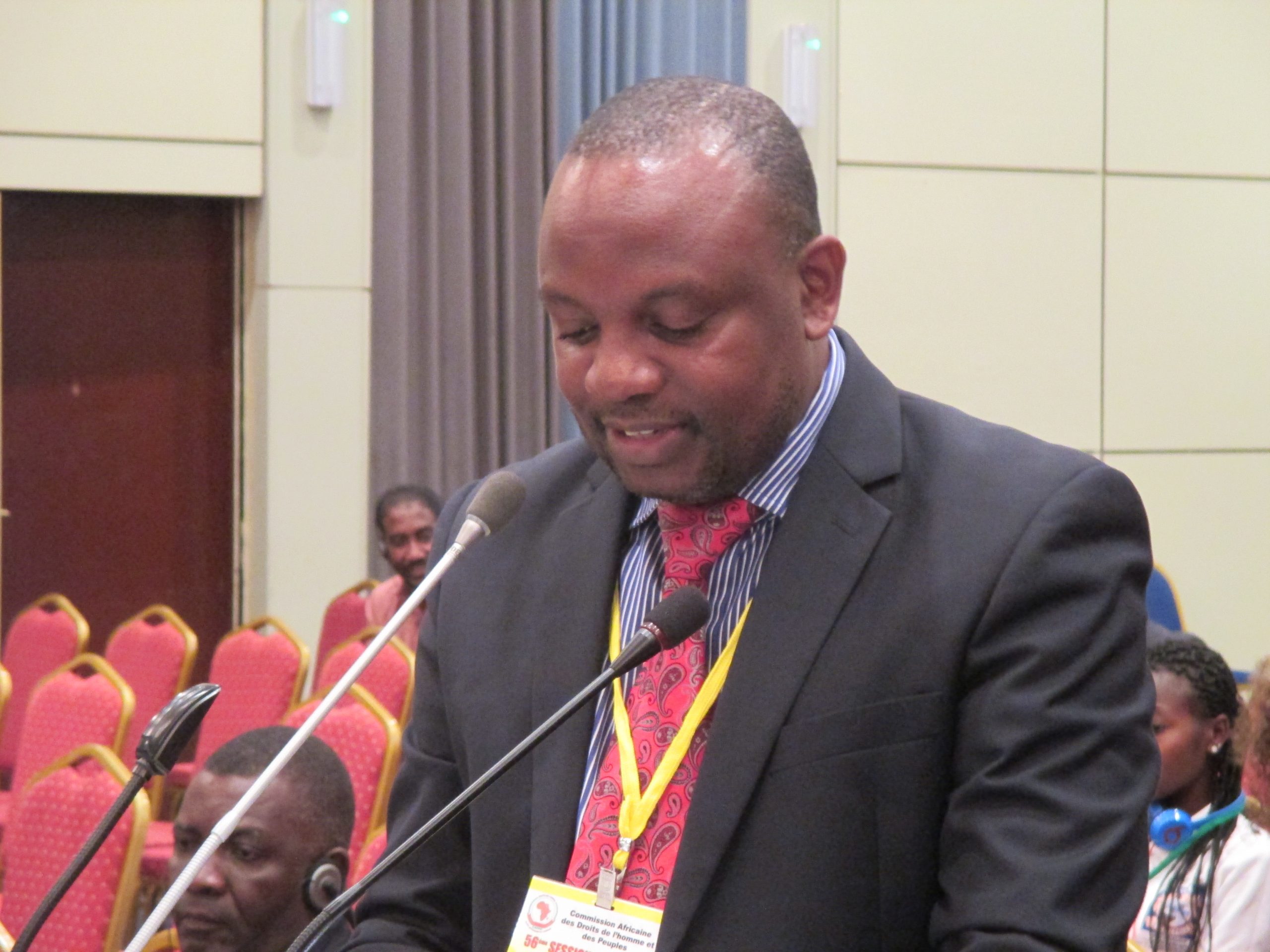
Gilbert Sendugwa: human rights defender and freedom of information campaigner from Uganda
Gilbert Sendugwa spearheads efforts at Africa Freedom of Information Centre, advocating for transparency across Africa by promoting access to information laws and their implementation.
Gilbert Sendugwa is Coordinator of Africa Freedom of Information Centre (AFIC), a pan-African network whose secretariat is based in Kampala, Uganda.
‘Before I started working with the Centre, I worked with issues of health and education. And it was always a big issue: information. I always asked: How do we get the information we need? How do people get the information they need from the Government in order to get on in life?’
In 2010 Gilbert went to work for AFIC, a network which has grown to 35 member organisations from 22 African countries, which are working on issues of access to information at the national level.
‘The main focus of the Centre so far has been to push for ratification of the many African instruments which enshrine the right of freedom of information, as well as ensure that these rights are reflected in national legislation and practice’.
They do this through international advocacy campaigns and supporting national strategies. And with a good degree of success. In 2010 Angola, Ethiopia, South Africa, Uganda and Zimbabwe were the only States with Freedom of Information Legislation. The number now totals 16, and with Tanzania likely to become number 17 next month.
‘The key to adoptions has been to engage with a range of parties: civil society actors, international mechanisms and representatives of different Government bodies. The leadership of the African Commission Special Rapporteur on Freedom of Expression and Access to Information has been crucial’.
Nonetheless, as Gilbert says ‘We have come to see that the passage of laws might be the easiest part’. Therefore AFIC is putting increasingly more energy into initiatives for implementation.
‘The objective of these laws is to empower the people. Implicitly, this means taking power away from those who have it and giving it to the population, so that they can help themselves advance in all of their rights. However, sometimes this provokes fear in the powerful and a reluctance to provide the information’.
Gilbert suggests that this fear can manifest itself in two ways: some Governments will not legislate on the issue, whilst others do, but ensure that the environment for civil society is not conducive to people having the confidence to use the law. He says that in many States fear of reprisals deters requests for information. A successful law on access to information, it seems, must go hand in hand with a safe and enabling environment for human rights defence in general.
However he points out that a common mistake of advocates on this issue is to see the State as a monolith. Rather, he argues, when it comes to implementation it is necessary to look at the various agencies from which you are soliciting information.
‘It is them who can grant the information or not. If you look at Uganda – as pointed out in their review by the ACHPR this week – some ministries have responded to all requests for information, whilst the response rate from the ministries for finance and education, for example, is zero’.
AFIC is pushing for implementation by training civil society on accessing information and producing a manual for them. They are also increasing their work with States, having seen results when these two approaches work in parallel. Developing a website with the Ugandan Government led Rwanda to follow, whilst they have also trained officials and are producing a separate manual for them.
ISHR met with Gilbert at the 56th session of the African Commission on Human and Peoples’ Rights, where he was lobbying for a strengthening of AU provisions on the right as well pushing Commissioners to formulate detailed recommendations to States under review in this regard.
‘It has been a successful session. We have been very happy with the quality of engagements from both sides, with detailed interventions on this issue. We look forward to the Commission making strong concluding recommendations’.
As ISHR prepared to make a statement on the importance of an enabling environment for human rights defenders working on corporate accountability, Gilbert admitted that this was one of the most challenging areas for freedom of information activists across the continent.
‘It is very difficult and risky to request information, whether it be regarding concessions, payments or environmental impact. But at the end of the day we are simply talking about the ability for communities to evaluate the impact of a project upon their lives and check the level of compliance of a business or a State with human rights law’.
Moving ahead, AFIC is involved with the International Alliance on Natural Resources in Africa which is designing a Model Law on Mining in Africa. The African Commission Working Group on Extractive Industries is being engaged regarding the idea.
‘Without information people cannot take informed decisions. I think we all deserve to be able to do that’.
Gilbert Sendugwa can be contacted at [email protected]. Follow him on Twitter: @GilbertSendugwa
